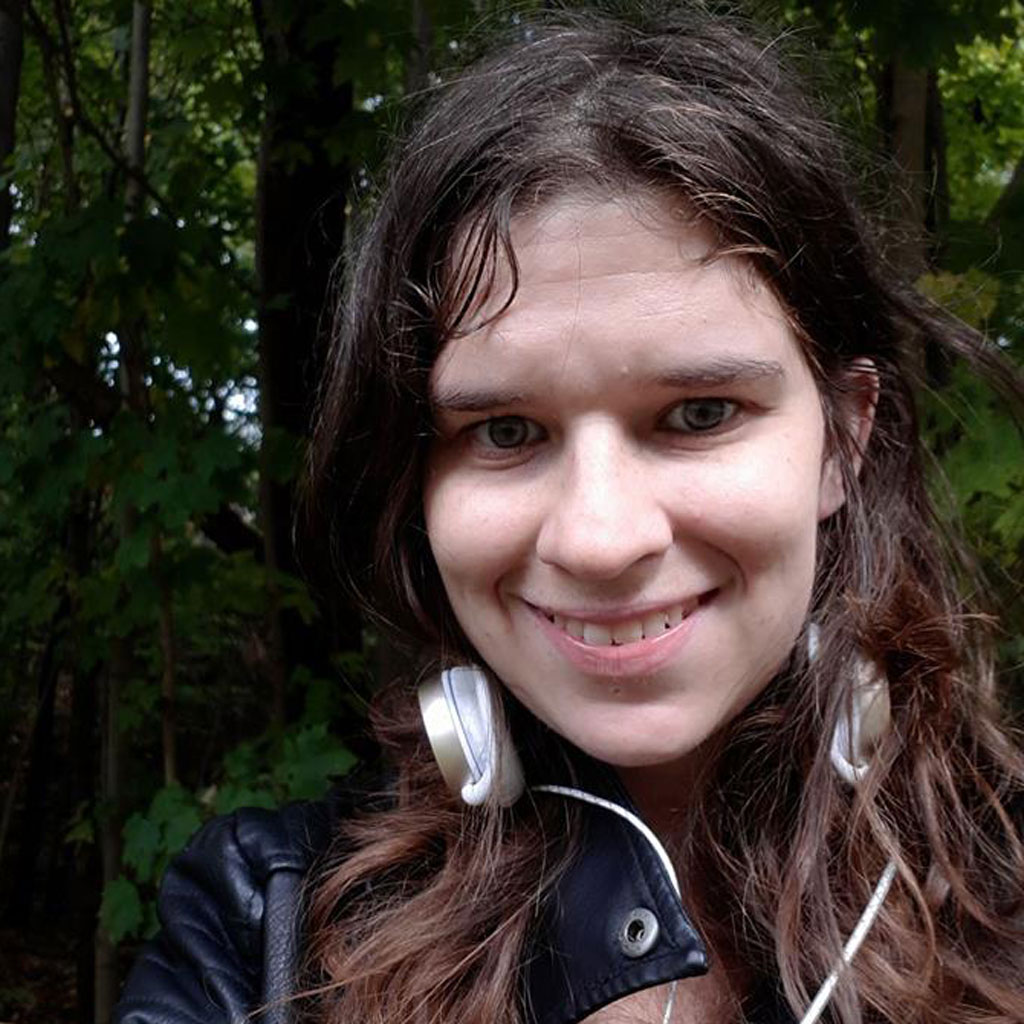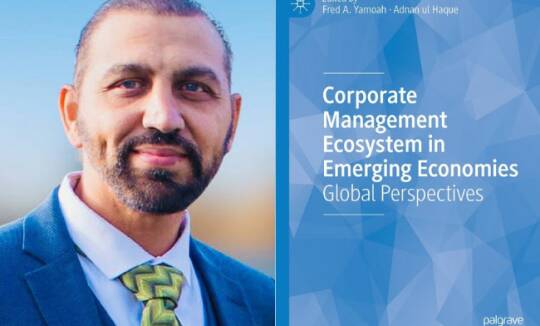When Yorkville University’s Ally Turcotte landed an internship at The Disability Channel just a few months after graduating from Toronto Film School, it seemed like a perfect fit.
Not only was its Digital Ventures Multi-Media Program professionally enriching, it also proved a personally nurturing and supportive environment for the Bachelor of Creative Arts student, who lives with cerebral palsy.

So, when Turcotte was approached by her teacher to take over his role as the program’s employment training facilitator, she jumped at the chance.
“Obviously my dream job would be to write my own TV show, but The Disability Channel is pretty close to a dream day job,” said the Newburgh, Ontario native, who graduated in 2019 from TFS’s Writing for Film & Television diploma program.
In addition to her role as a Digital Ventures facilitator, in which she teaches subjects including videography and audio recording, Turcotte also works alongside students on special projects destined for the airwaves on The Disability Channel.
“As somebody with a disability who really struggled to find my place in the industry and to get the training that I needed, it’s just really awesome to now be able to help give that to someone else, too.”
After all, Turcotte knows first-hand just how difficult it can be for people with disabilities to gain access to the education they need to pursue their passions – especially in the film industry.
Just after high school in the early 2000s, she enrolled in a film and television program at another college, and was promptly kicked out after just a few terms on the sole grounds that she had a disability.
“It was for no other reason. They told me to my face when I left, ‘You are talented enough to do this, you are smart enough to do this, but we’re not set up for you to do this,’” she said, noting the school failed to provide the necessary accommodations for the physical demands of the program.
“It’s horrifying – and not just for me and what happened to me, but think of all the smart, talented people who have so much to offer, but are so often told, ‘Sorry there’s no wheelchair ramp for you.’”
Fearing her lifelong aspirations of becoming a television writer were in jeopardy after that negative experience, Turcotte took an unfulfilling job at a hotel for a few years. Still, she continued to write, all the while seeking out opportunities to chase her dream.
It was while searching screenwriting courses online that she came across Toronto Film School’s 18-month Writing for Film & Television program.
“I remember having this moment where I realized I could go to a school just for writing, and I opened my mouth and what I meant to say was, like, ‘Oh my gosh, I could go back to school’ but what I actually said was, ‘Oh my gosh, I could be happy,’” she said.
“That was a big moment for me. I realized then and there I needed to make a change.”
When she first enrolled at TFS, Turcotte’s biggest concern was that history might repeat itself and that none of her classmates would want to work with her because of her disability – a fear she quickly discovered to be unfounded.
“When I went to TFS, it was a very different environment. Everyone was just really supportive. It was fantastic, I had a great time, and I was able to really excel,” she said, recalling a conversation with screenwriting program director Adam Till during which she vocalized her fears.
“Now it’s something that we joke about. He’s, like, ‘Remember when you thought no one would want to work with you? Look at how great you are and look at how good you’re doing.’ It was a totally different experience.”
Turcotte said she also felt supported during her studies in Yorkville’s Bachelor of Creative Arts, for which Till also serves as program director. While admitting her primary career goal remains television screenwriting, she’s found the skills she’s learning in the degree program are highly transferrable to making those dreams come true.
“I’ve always said, ‘I want to be a writer and nothing else,’ but there are a lot of courses that I’m finding really useful and really, really interesting,” she said, noting, for example, that she’s taking notes on how to manage her own career from her Talent Management class.
“I’m also taking a Research for the Arts class that I think can actually help me figure out how to tackle a writing project that I’ve always wanted to work on around representation and the effect that it has on real life, especially around people with disabilities.”
Listing Speechless, I May Destroy You and Good Omens among some of her favourite barrier-breaking television series, Turcotte said her ultimate goal is to tell really human stories “but then just throw something weird at it and see what happens” – all while keeping representation in mind.
“Representation is a big thing for me. And I think it’s time for it. We’re seeing a big push for authentic representation – not just putting someone in front of a camera and calling it representation,” she said, noting that people with disabilities need to be the decision-makers behind the scenes, as well.
“That kind of representation is hard to find on mainstream TV. On Atypical and The Good Doctor, there’s not a single autistic person on those boards – and that’s embarrassing in 2021.
“At The Disability Channel, that’s the kind of thing that we’re trying to change – we’re creating a platform that’s for us and by us. And that’s really cool to be a part of.”






